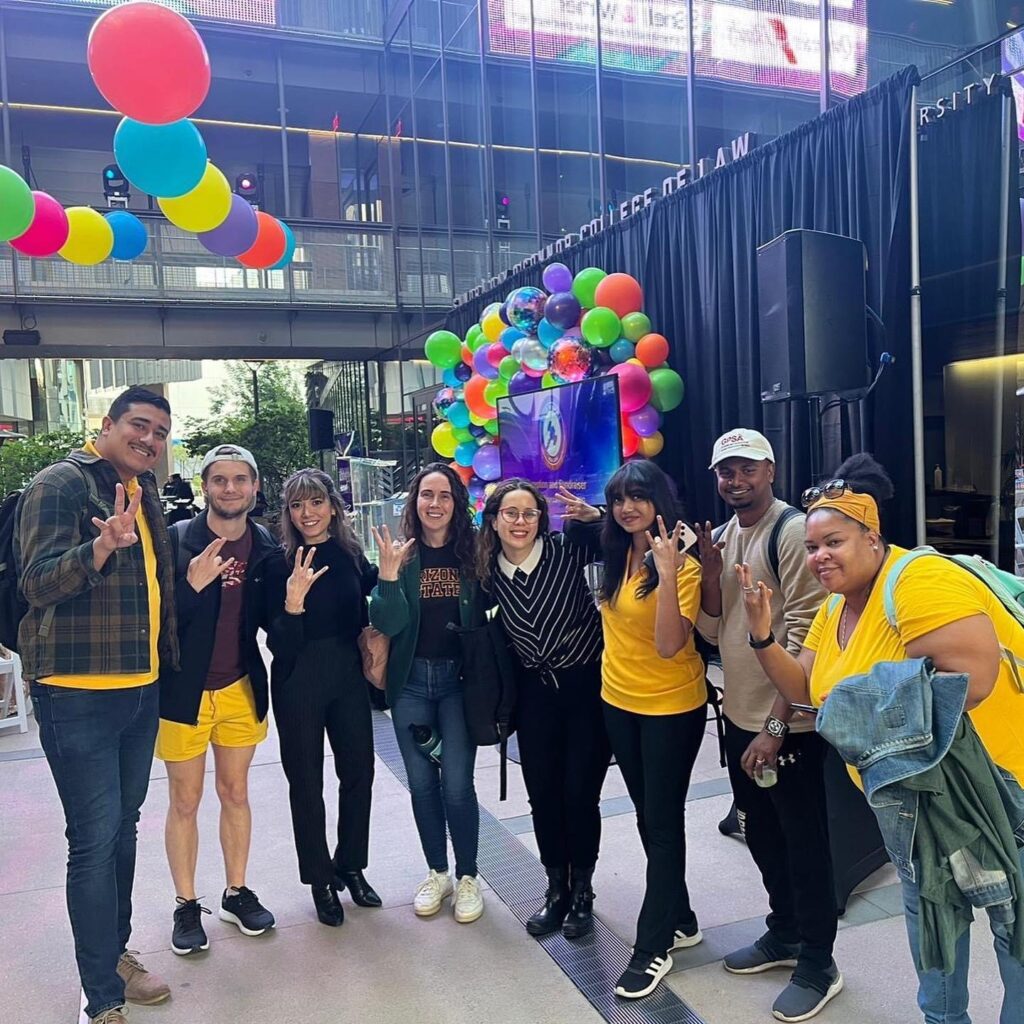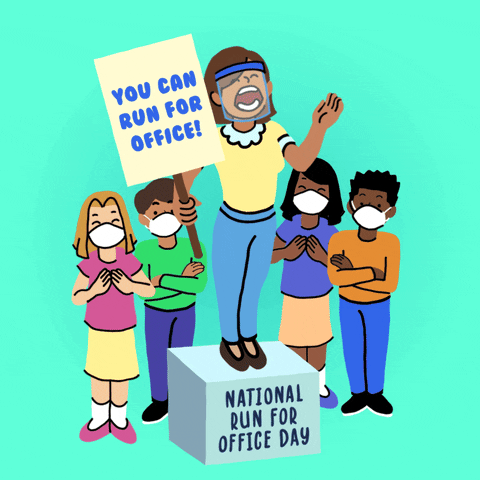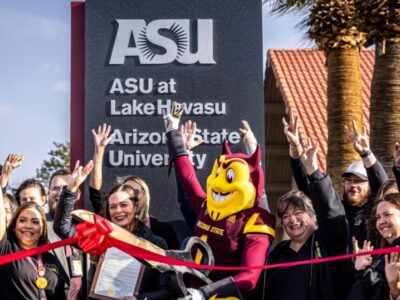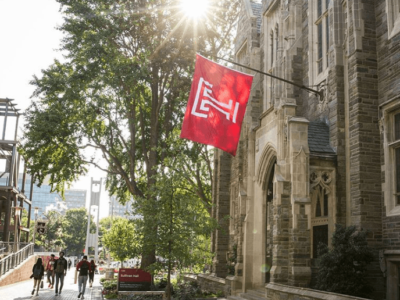Have you ever wondered how working in your college’s student government might feel? Well luckily for you, you don’t need to have a political sciences degree to get the general gist. Your college’s student government functions as a representation for the general student body. If something happens on campus and you don’t like it, you can reach out to the class representation. They then will speak with the deans and other faculty at your college to work towards a solution for this issue.
I sat down with Farah Najar Arevalo, the Graduate and Professional Student Association (GPSA) Assembly President at Arizona State University to hear more about her experience in her position and to share some tips for anyone hoping to step into this role of leadership in college.
Q: What does the position of Assembly President entail? Do you believe it is different as you are a graduate student compared to that of an undergraduate student?

FA: The Assembly President chairs and oversees GPSA’s assembly. This can entail planning, executing and presiding the meetings to representing the assembly in different spaces within ASU. It is very similar to the Undergraduate Student Government USGs. USG has leadership in each of the campuses, meaning four Senate presidents. We share similar challenges and sometimes issues in the legislation our members process. We are members of Associated Students of ASU (ASASU), so there is some standardization in our processes. For example we all use Robert’s Rules of Order, a system that helps to manage debate, go through the agenda and make sure everyone has a chance to speak. The senate presidents manage the senates of their campus, whereas for me it is one assembly for all campuses adding to online.
Our constituencies [graduate and undergraduate students] are different but we face similar issues. For example, our GPSA constituents already have an undergraduate degree. In most cases, post degree work experiences related to their undergraduate degree or to their graduate studies. We also have a great constituency of international students who come to obtain a masters or a PHD or more students more advanced in age than undergraduates who are parents. This context shapes the type of issues the assembly debates.
Q: What goals did you have while serving as Assembly President? Why did you decide on those goals specifically?

FA: My goals were providing assembly members with a vast set of tools and opportunities to advocate for their peers, create their own initiatives resulting in them feeling empowered. I also wanted to use the assembly as a learning space on how GPSA can serve online graduate students, since they became full members of GPSA after the passage of our Spring 2022 referendum as well as learn how our constituents could engage more with us in addition to attending our events. I thought the GPSA needed these goals and that I actually could actually work on them.
Q: Do you believe you have accomplished your goals? If so, what do you think has helped you accomplish them? If not, what would you have changed?

FA: Yes, partially. I have worked with my team and the committee I chair to create immersive learning experiences for assembly members. For example, the first assembly meeting mock up at their Fall orientation to a Canvas course started by my predecessor. On the second [question], we had three online students on assembly seats during the Fall 2022 period. I put a lot of effort into promoting vacant seats among the online graduate community and those three were a success, but I wished there were more and that they would continue. I have been lucky in receiving lots of requests from our constituents who want to volunteer with us. When someone does this, I ask them to review our legislative committees and pick on which one they would like to volunteer. Then I introduce them with the committee chairs. This has been a success thanks to the chairs, and this has enabled me to have a pool of interested applicants in the pipeline when an assembly member resigns and their seat becomes vacant.
Q: How have you balanced your position and your studies?

FA: During the pandemic lockdown I learned to use project management apps for work, school and other personal tasks. These have been helpful with my leadership time at GPSA. Having accountability with different mentors and peers on each project is also another way to stay on track. My spouse taught me the pomodoro method which has been life changing in a world built for distraction. Asking for help when needed and celebrating accomplishments are the last ways that have been really helpful for me. Oh, and noise canceling headphones with deep focus music!
Q: What inspired you to run for office?

FA: My first exposure to the GPSA Assembly was in the Spring 2021 semester when I was a proxy (a substitute) for my former assembly member representative Diana Madril. I really enjoyed the experience, so I joined the assembly for the next academic year (2021-2022). The Assembly President of that year Jamal Brooks-Hawkins and Diana were two figures that inspired me to consider the possibility of running.
Q: What was the process of running for your position like? Did you find it easy or difficult?

FA: Running for the position was a very hard process for me because I had a very competitive and determined opponent. I experienced impostor’s syndrome during our election and even after. I am a woman and Mexican, and I think as Latina women we need to get comfortable in spaces of power. When we feel that we don’t belong, we can remind ourselves of those that were before us and those that will come after us.
There have been moments where I question if I deserved it. Then I would remind myself of my past accomplishments, my skills and the stupendous team I have: Zee Wilson, Germaine Koziarski and Sean McAllister. They have been blessings in my path. I also had a great mentor, our GPSA advisor Dr. Jen O’Brien who always has the perfect words I need to hear and a supportive and energizing peer, Florian A. Schneider, the GPSA President.
Q: What is your best piece of advice for undergraduate students curious about pursuing this role in graduate school?

FA: I would recommend them to start a similar experience if you can while in undergrad, for example within your USG, but also to consider completely different experiences such as a job and volunteering outside the campus environment. I would recommend also joining a student club or even forming one yourself, participating in advocacy opportunities, and working on soft skills as well as technical skills.
Q: Has this experience been memorable for you? If so, how? For example, have the people you served with made your experience wonderful or do you believe that legislation you’ve worked on really shaped your experience?

FA: Before being Assembly President, I had experience in my department’s student organization. I also had work experience in government, teaching and research in Mexico, USA, Brazil and the Middle East. However, this was my first time at such a high leadership level. It has been a very memorable experience for me, full of learning, challenges and growth. I have seen graduate students email their assembly member representatives asking to support or oppose legislation and assembly members speaking for them on the assembly floor. This has been very inspiring because it shows engagement.
Q: If you could be remembered for one accomplishment during your time as Assembly President at ASU, what would that be?

FA: I would like to be remembered as the Assembly President who had the largest assembly 45 out of 49 seats filled in some Fall 2022 months, with the first online students cohort as well as the Assembly President who used her office resources (human, technical) for assembly members to feel encouraged and empowered to create the change they wished.
Q: Do you have aspirations to run for any political positions after graduation?

FA: I see myself working at an organization that generates applicable knowledge and supports the government (mostly local), this could be in consultancy or academia. I also like teaching. I plan to engage in government from a different standpoint, but I do not plan to run for office. However, I am someone who is open to considering changes.
How to Run for Office:
Tip #1— Be ready to make peace with your mistakes, to own them and accept them. They are insightful spaces to grow.
Tip #2— Receiving feedback is like receiving a gift. Some gifts we receive are exactly what we need, some are nice to have and some are completely useless. Regardless of what you can do with the gift, appreciate the giver!
Tip #3— Be an avid learner. GPSA offers many resources and extra opportunities to best learn how to perform your role: from official to unofficial mentor figures to our training materials, multiple events to engage with other members of the association. If you are new to the organization and to the position, study its materials very well, observe others, ask questions, take opportunities, and propose solutions.
How to Connect with Farah Najar Arevalo
Twitter: @farahivna
Email: [email protected] and [email protected] (no longer monitoring it after May 10th, 2023).



















